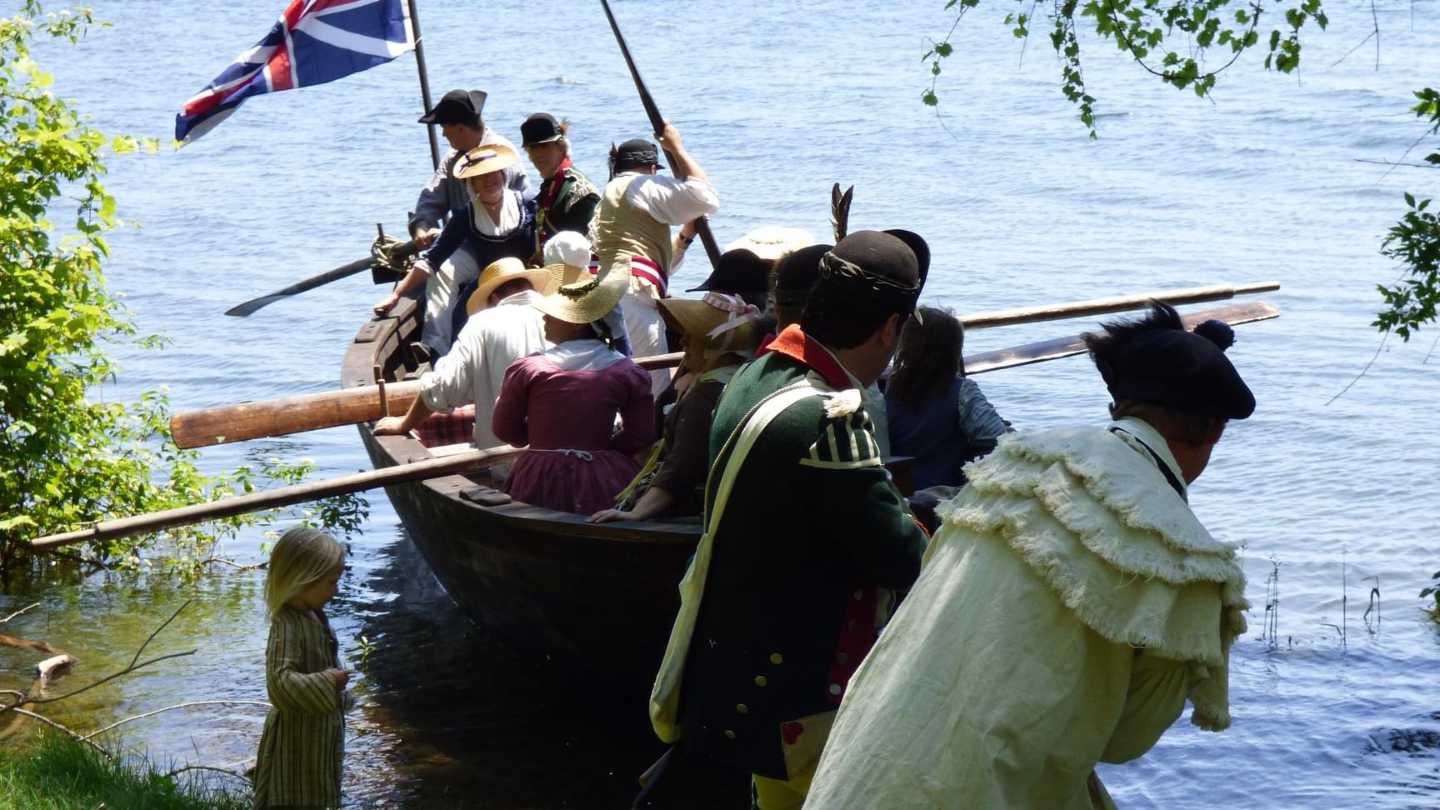
Ever wondered who stood against the tide during America's fight for independence, favoring British rule instead? Loyalists were those folks, steadfast in their allegiance to the Crown amidst revolutionary fervor. But who were they, really? Were they just adversaries of change or did they have compelling reasons for their loyalty? This intriguing slice of history reveals a complex tapestry of beliefs, fears, and hopes. From their motivations to their fates post-war, we're diving into the lesser-known stories of these individuals. Buckle up for a journey back in time as we uncover 19 fascinating facts about Loyalists, shedding light on their lives and legacies. Ready to have your curiosity piqued? Let's get started!
Key Takeaways:
- The Loyalists were colonists who stayed loyal to Britain during the American Revolution, facing challenges and contributing to Canada's development after the war.
- Despite facing persecution, the Loyalists played a significant role in shaping Canada's early development and continue to be celebrated for their contributions.
Who Were the Loyalists?
During the American Revolution, a significant group of colonists remained faithful to the British Crown. These individuals, known as Loyalists, opposed the Patriots who fought for American independence. Their loyalty to Britain stemmed from various reasons, including economic benefits, fear of change, and a strong belief in British constitutional law.
Reasons Behind Their Loyalty
-
Economic Ties: Many Loyalists had strong business connections with Britain. Their livelihoods depended on trade with the mother country, making them wary of severing ties.
-
Cultural Identity: For some, being British was a core part of their identity. They took pride in their heritage and the protection the empire provided.
-
Fear of Revolution: The idea of rebelling against a longstanding government was frightening. Loyalists feared the chaos and uncertainty that revolution could bring.
Life During the Revolution
Living as a Loyalist during the American Revolution was fraught with challenges. They faced persecution from Patriots, including property confiscation and physical violence. Many were forced to flee their homes, seeking refuge in Canada or Britain.
-
Persecution: Loyalists were often targeted by Patriots, who saw them as traitors to the cause of independence.
-
Exile: Thousands of Loyalists left the United States, establishing new communities in Canada, where they could remain under British rule.
Their Contribution to Canadian Society
After the war, Loyalists who moved to Canada played a pivotal role in shaping the country's early development. They brought with them skills, traditions, and a determination to rebuild their lives in a new land.
-
Settlements: Loyalists founded towns and cities in what is now Ontario and the Maritime provinces, significantly influencing the cultural and physical landscape of Canada.
-
Legal and Social Systems: Their values and beliefs helped shape Canadian society, contributing to the development of legal and social systems that differed from those in the United States.
Legacy of the Loyalists
The legacy of the Loyalists is complex and multifaceted. In the United States, they are often overlooked in the narrative of the American Revolution. However, in Canada, they are celebrated for their role in the country's founding.
-
Cultural Impact: The Loyalists' influence is still evident in Canada, from place names to cultural practices that distinguish Canadian from American identity.
-
Historical Recognition: Canada recognizes the contributions of the Loyalists, with monuments and historical sites dedicated to their memory.
Misconceptions About Loyalists
Despite their significant role in history, several misconceptions about Loyalists persist.
-
Not All Were Aristocrats: While some were wealthy and held positions of power, many Loyalists were ordinary people, including farmers, artisans, and laborers.
-
Diverse Backgrounds: The Loyalist population was diverse, including individuals of various ethnic backgrounds and enslaved Africans promised freedom for their loyalty.
-
Political Beliefs: Not all Loyalists were staunchly conservative; some were simply cautious about the idea of revolution and its consequences.
Loyalists in Modern Memory
Today, the story of the Loyalists offers valuable lessons on loyalty, identity, and the complexities of historical narratives.
-
Reevaluation: Historians and the public are reevaluating the Loyalists' role, recognizing their contributions and the sacrifices they made.
-
Educational Curriculum: In Canada, the Loyalists are an integral part of the educational curriculum, teaching students about the country's early history and the diverse people who shaped it.
-
Cultural Celebrations: Events and reenactments celebrate Loyalist heritage, particularly in regions heavily influenced by their settlement.
The Enduring Influence of Loyalists
The Loyalists' impact on North American history is undeniable. Their decisions during a tumultuous period shaped the futures of both the United States and Canada in profound ways.
-
Bilateral Relations: The migration of Loyalists to Canada laid the groundwork for the complex relationship between Canada and the United States, influencing diplomatic and cultural ties.
-
Architectural Legacy: Buildings and infrastructure established by Loyalists contribute to the architectural diversity of Canada, showcasing styles that reflect their British heritage.
-
Political Ideals: The ideals and beliefs of the Loyalists influenced the political development of Canada, promoting values such as loyalty, order, and a preference for constitutional monarchy over republicanism.
-
Community Spirit: The spirit of community and resilience demonstrated by the Loyalists remains a source of inspiration, highlighting the importance of perseverance in the face of adversity.
A Final Nod to History's Unsung
Loyalists, often overshadowed in the grand narrative of revolution, played pivotal roles that shaped nations. Their stories, rich with complexity and diversity, remind us that history isn't just about the victors. It's also about those who found themselves on the other side of the emerging borders, driven by beliefs, fears, and hopes as valid as those of their counterparts. Understanding their journey offers a more nuanced view of our past, highlighting the importance of empathy and the recognition of diverse perspectives in shaping our collective memory. As we delve into the annals of history, let's remember the loyalists not as mere footnotes but as significant contributors to the tapestry of our shared heritage. Their legacy, marked by resilience and adaptation, continues to influence the cultural and societal landscapes of nations long after the cannons fell silent.
Frequently Asked Questions
Was this page helpful?
Our commitment to delivering trustworthy and engaging content is at the heart of what we do. Each fact on our site is contributed by real users like you, bringing a wealth of diverse insights and information. To ensure the highest standards of accuracy and reliability, our dedicated editors meticulously review each submission. This process guarantees that the facts we share are not only fascinating but also credible. Trust in our commitment to quality and authenticity as you explore and learn with us.


